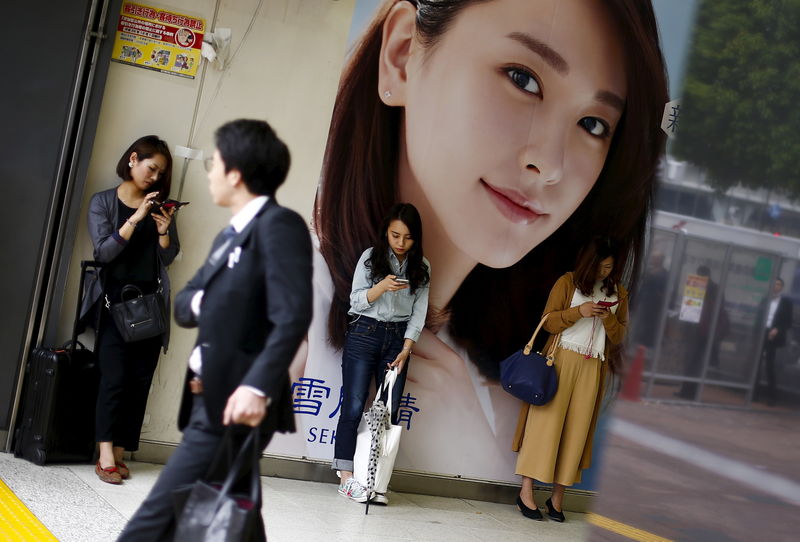Fubotv earnings beat by $0.10, revenue topped estimates
(Bloomberg) -- The rise in the cost of living in Tokyo matched its fastest pace in the last two years in February, an acceleration from January that suggests nationwide price growth is also due to pick up speed, driven by elevated energy prices.
Excluding fresh food, consumer prices in the capital increased 0.5% from a year earlier, according to the ministry of internal affairs Friday. That outpaced a 0.4% gain expected by economists.
Even if the faster pace is also reflected at the national level that would still leave price growth far behind the global trend and the Bank of Japan’s 2% target.
Still, the stronger-than-expected price rises suggest Japan’s inflation pulse may be quickening more than expected and could fuel speculation that the BOJ might consider adjusting policy amid a wave of hawkish moves by its global peers in response to stronger price gains.
A sharper jump in the consumer price index is also widely expected in April when slashed phone bill charges from last year start to drop out of the calculations.
The Russian invasion of Ukraine is also likely to keep oil prices elevated or push them up further.
What Bloomberg Economics Says...
“Higher costs of imported goods such as food and energy, further fueled by a weaker yen, are likely to buoy consumer prices. For consumers, rising prices of gasoline and food are bad news -- and could hit sentiment and damp spending.”
--Yuki Masujima, economist
Click here to read the full report.
Energy costs contributed 1.06 percentage point to overall prices, showing that climbing oil markets have again been the driving force behind Japan’s core inflation numbers.
Prime Minister Fumio Kishida said Friday that the government will ramp up support for those affected by the surge in oil prices after already subsidizing gas stations to cap rising gasoline prices.
Read More: World Economy Inflation Shock Set to Worsen From Oil at $100
Even without the commodity factor, Japan’s inflation is projected to accelerate from April on the phone factor. Nationally, cheaper phone charges have been pushing down the overall inflation index by around 1.5 percentage point in recent months.
BOJ Governor Haruhiko Kuroda reiterated Thursday that the current level of inflation doesn’t require the bank to consider making any policy adjustments. The governor underscored that stance with actions last week when the BOJ intervened in the bond market to keep yields low for the first time since 2018.
Keeping 10-year yields near its zero target is part of the bank’s measures to stimulate the economy and prices.
In a sign of the growing cost pressures on companies, Yaokin Co., producer of a popular 10-yen ($9 cents) snack for children, announced late last month it would raise its price tag to 12 yen for the first increase in 42 years.
(Adds more details from the release)
©2022 Bloomberg L.P.
